- Учителю
- Заключительный урок английского языка в 9 классе. 'Великобритания: традиции, обычаи, праздники'
Заключительный урок английского языка в 9 классе. 'Великобритания: традиции, обычаи, праздники'
Муниципальное общеобразовательное учреждение
«Средняя общеобразовательная школа № 42»
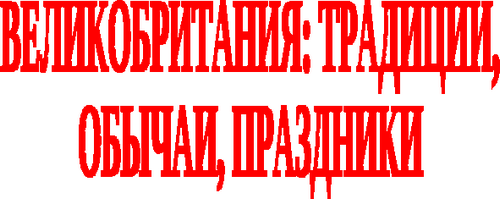

Ядкова Ирина Владимировна,
учитель английского языка
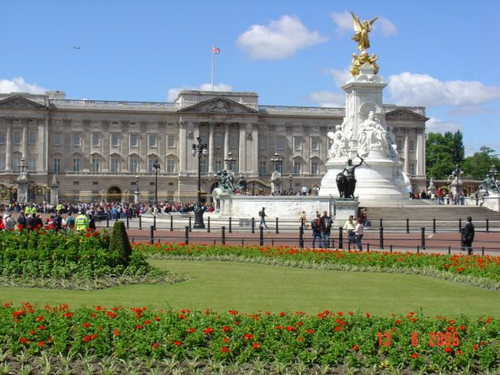
Воркута
2013 год
Заключительный урок в 9 классе по теме «Соединенное Королевство Великобритании
и Северной Ирландии»
Тема: «Великобритания, ее традиции, обычаи, праздники».
Тип: Урок обобщения и систематизации знаний учащихся.
Цель урока: формирование коммуникативных умений и навыков учащихся по теме: "The United Kingdom of Great Britain and Northern Ireland"
Задачи:
развивающая - развитие восприятия английской речи на слух, способности к распределению и переключению внимания.
образовательная - совершенствование знаний, умений, навыков по овладению лексикой страноведческого характера, расширение кругозора учащихся о достопримечательностях страны изучаемого языка, нравах и обычаях, жизни и творчестве великих людей этой страны.
воспитательная - воспитание чувства уважения к стране изучаемого языка, толерантного отношения к другим народам, приобщение учащихся к духовному наследию Великобритании и ее людей.
П Л А Н:
I. Организационный момент (психологическая готовность учащихся к уроку).
II. Вступительное слово учителя, подготавливающее учащихся к высказываниям по данной теме.
III. Проверка знаний ранее изученного материала (в форме викторины).
IV. Проверка выполнения работ (ответов учащихся по окончанию викторины), корректировка при необходимости.
V. Развитие восприятия иноязычной речи на слух (аудирование): игра «Домино», «Угадай мелодию», «Отгадай праздник».
VI. Оценка результатов урока.
VII. Подведение итогов урока.
Оснащение урока: компьютер, мультимедийный проектор, экран, аудиозапись, карта Великобритании, карточки для игры «Домино».
I. Оргмомент.
Учитель: Good-morning, children! I am glad to see you.
Дети: Good-morning, teacher! We are glad to see you too.
Учитель: How are you today?
Дежурный ученик: We are fine, thanks. All pupils are ready for the lesson.
II. Вступительное слово учителя.
2. Учитель: Today we'll speak about Great Britain, London, the capital of Great Britain, English traditions, customs and holidays, something about sport and culture, remember Wales and Scotland.
Welcome to London!
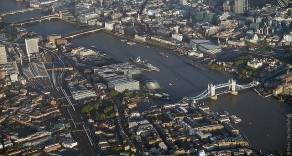
Today I've prepared a surprise for you! Let me introduce the girl. Her name is Alice. Alice is an English girl. She has come from Great Britain on her holidays. You may ask her questions as you like.
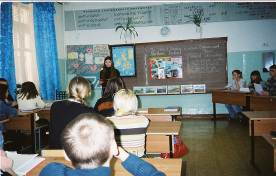
Pupil 1: Alice, what part of Great Britain are you from?
Alice: I am from England. I live in London.(Показывает по карте).
Pupil 2: Are there any famous sights in London?
Alice: Yes, there are a lot of famous and interesting sights in London: Tower Bridge, Big Ben, the Houses of Parliament, Trafalgar Square, the British museum and some others.





Pupil 3: Alice, what is your favourite place in London?
Alice: I like St.James's Park. Here you can see pelicans and ducks. People have a rest there and meet with their friends.

![]()

Pupil 4: Are you a pupil of a secondary school?
Alice: Yes, I am. I am a pupil of a secondary school and after it I'm going to enter the University.
Pupil 5: How do you get to your school: by bus or by tram?
Alice: Actually I have a car. When I was 16 I got a driver's license.
Pupil 6: How long does it take you to get to the school?
Alice: It takes me about 20 minutes by car.
Pupil 7: Do you like to go to the parks?
Alice: Yes, of course. I like to visit Hyde Park. In the park anyone can say what he wants. It is a
very democratic Park.
Hyde Park is a very democratic park in London!




Pupil 8: Alice, we see you like to travel, but are you fond of sport?
Alice: I like to play basketball and tennis, but I'm not a sport-lover.
Pupil 9: What do you do in your free time, Alice?
Alice: Well, I like to listen to music, see films, go on hiking. I also read much. My favourite writer is Agatha Christy. I prefer detective stories to all other books.
Pupil 10: Thank you for your interview, Alice.
III. Проверка знаний учащихся ранее изученного материала (викторина).
3. Alice: And now, dear boys and girls, I'd like to know what you have learned about Great Britain, its people, their traditions and customs from your English lessons. I'll play a quiz with you. If a pupil gets the more number of counters he will get a prize.
Interview with Alice!
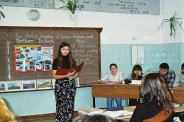
Answer my questions:
1. Who is officially the head of the state in Great Britain? (The Queen)
2. How many Houses does the British Parliament consist of? (It consists of two Houses: the House of Commons and the House of Lords)
3. Which House of Parliament is elected by the people? (The members of the House of Commons are elected by the people)
4. In whose hands is state power in Britain? (It belongs to the Parliament)
5. What political parties in Britain do you know? (The Conservative, Labour, Liberal and Social
Democratic)
6. What English and Russian cities establish friendship between each other and become twin
cities? (Coventry and Volgograd are twin cities)


7. What English writers and poets do you know? (I know Rudyard Kipling, William Shakespeare, Walter Scott, Lewis Carroll, Charles Dickens, Robert Burns, Oscar Wilde, Robert Stevenson)

8. What is the native town of William Shakespeare? (Stratford-upon-Avon)
Stratford-upon-Avon is the native place of William Shakespeare.


9. What famous comedies, tragedies or dramas do you know? (Romeo and Juliet, Othello, King
Lear, Macbeth, Antony and Cleopatra)
10. Where was Shakespeare buried [`berid]? (He was buried in Stratford)
Globe Theatre, where W. Shakespeare's plays are performed.


11. What English composers [kem`pouzez] do you know? (I know Benjamin Britten)
12. What is Benjamin Britten's great musical work? (In 1962 Benjamin Britten finished a very
big musical work: the "War Requiem")
13. What English sport games do you know? (Football, basketball, cricket, golf, volleyball)
14. When do English people usually celebrate Christmas Day? (on 25-th, December)
15. What is the traditional Christmas meal? (Pudding and roasted turkey)
16. How do English people usually give presents to each other? (They put them into the stockings under the New Year Tree)
17. What other English holidays do you know? (a Boxing Day, May Day, Mother's Day, a Bank
Holiday Halloween, Guy Fawkes' Night)
18. What do you know about the Westminster Abbey? (It is a historic building. It is a royal church. Here you can see the tombs of many British kings and queens, other famous people, and the beautiful Henry VII Chapel. The Abbey was founded in the 11-th century. Many of Great Britain's famous men are buried in Westminster Abbey)
IV. Проверка выполнения работ (ответов учащихся по окончанию викторины), корректировка при необходимости.
4. Alice: How many counters have you got? (Алиса подсчитывает жетоны у всех учащихся класса. Трем ученикам, набравшим большее количество жетонов, раздает призы.)
You have got the more number of counters. Get your prizes, will you? Thank you for your answers. They were right. You've told me a lot of interesting about Great Britain. I invite you to my country and wish you success in studying of English language. And now let's do physical exercises:
Hands up, hands down
Hands on hips, to the sides
Look up, look down,
Hands up, hands down
Bend left, bend right
Hands up, hands down
And sit down. (провела со школьниками физкультминутку и села сама за парту.)
Класс взаимно поблагодарил Алису, попрощавшись с ней.
V. Развитие восприятия иноязычной речи на слух (аудирование).
5. Учитель: Now, boys and girls, let's play a game! ( Девочки и мальчики начинают играть
в «Домино», слушая внимательно друг друга. В руках держат карточки.) Цель игры -
услышать вопрос и дать правильный ответ, зачитывая его по своей карточке.
What is the capital of Scotland?
What is the capital of Wales?
What is the highest mountain in Scotland?
Ben Nevis is the highest mountain in Scotland.
The southern part of Scotland is called the Lowlands.
Edinburgh is the capital of Scotland.
What is called the northern part of Scotland?
What is called the southern part of Scotland?
What is the highest mountain in Wales?
Cardiff is the capital of Wales.
The northern part of Scotland is called the Highlands.
The Severn is the longest river in England.
What is the longest river in England?
What do you know about lakes?
What is the climate of the British Isles?
The climate of the British Isles is not very cold in winter and never very hot in summer.
The highest mountain in Wales is Snowdon.
The population of the United Kingdom of Great Britain and Northern Ireland is almost 56 million.
What are the main nationalities in the UK of Great Britain and Northern Ireland?
What is the population of the United Kingdom of Great Britain and Northern Ireland?
What things are made in London and around London?
There are many beautiful lakes. They are mostly in Scotland and North-West England.
Lots of things such as clothes, foot, planes, cars are made in and around London.
There are four main nationalities: the English, the Scots, the Welsh and the Irish.
Учитель: All right! You know much about Great Britain and now have a rest. Listen to the song
and guess the name of it. Звучит песня «Auld Lang Syne».
Учитель - класс: Have you known a famous song?
Ученик 1: Yes, it's a famous English song by Robert Burns. People sing it on Christmas Eve and say good-bye to the old year.
Учитель - класс: You are right! Now, tell me, please, about cities or sights you want to visit.
Ученик 2: I'd like to visit Scotland. I like their national holiday and their costume, the kilt. I'd
like to take part in their traditional holiday. Ученик 3: I'd like to visit James's Park. It is one of the royals parks. Here you can see pelicans and ducks.
Учитель - класс: And now, children, let's sing a song "Say hello!" all together. (Дети поют песню, слушая диск.)
I say hello! (a song)
Leader: Children:
Say hello --- Hello!
Say hello --- Hello!
Say hello --- Hello!
Say hello --- Hello!
British holidays.
And now guess the holiday! (Предъявляются рассказы о праздниках.) Задача детей - услышать и правильно назвать британский праздник.
1. This is holiday when people go to the seaside or to one of the big parks. Many families take a
basket and put their lunch or tea in it. They sit on the grass under a tree, have their meal in the open air. Good weather is very important. Business houses and factories are closed on this day and no one works on this day. It is an official public holiday. What is it a holiday?
Ребята отгадывают праздник. (P1: It's a Bank holiday.)



2. This holiday is not as popular as Christmas. Usually it is a family party or a party arranged by
a group of young people. It begins at 8 p.m. and goes on until the morning. There is a lot of drinking, cold meat, pies, sandwiches, cakes and biscuits. Dances are held in dance halls. Some
people send cards and give presents. (P2: New Year's Day.)



3. This is an extra holiday after Christmas Day. This is the time to visit friends and relatives or
perhaps sit at home and watch football. It is in December. It is the second day after Christmas.
(P3: It is a Boxing Day.)


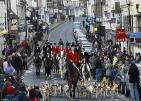
4. This is the holiday when men and boys give flowers and little presents to women and girls.
They help their mothers about the house, cook dinner and send postcards. (P4: It's a Mother's
Day.)



5. This holiday is in spring. This is the holiday when people fight for their rights, solidarity all
over the world. (P5: It's a May Day.)



6. It is a holiday when children make jack-o' lanterns candles are put inside hollow pumpkins
which have holes cut into them in the shape of eyes and a mouth. (P6: Halloween.)



7. This holiday is on the 5-th of November, when in Britain people light fireworks and burn a a guy on a bonfire. This is in memory of the time when Guy Fawkes tried to destroy Parliament in
London in 1605. The historical meaning of the occasion is no longer important. (P7: It is Guy Fawkes' Night.)




8. It is a holiday when people send each other Valentines cards. They speak about their love. It
is in February. (P8: St. Valentine's Day.)




VI. Оценка результатов урока.
VII. Подведение итогов.
Учитель подводит итоги урока, благодарит учащихся за активное участие на уроке, выставляет оценки. (Самым активным ученикам, принявшим участие в викторине и игре раздает поощрительные и сладкие призы.)